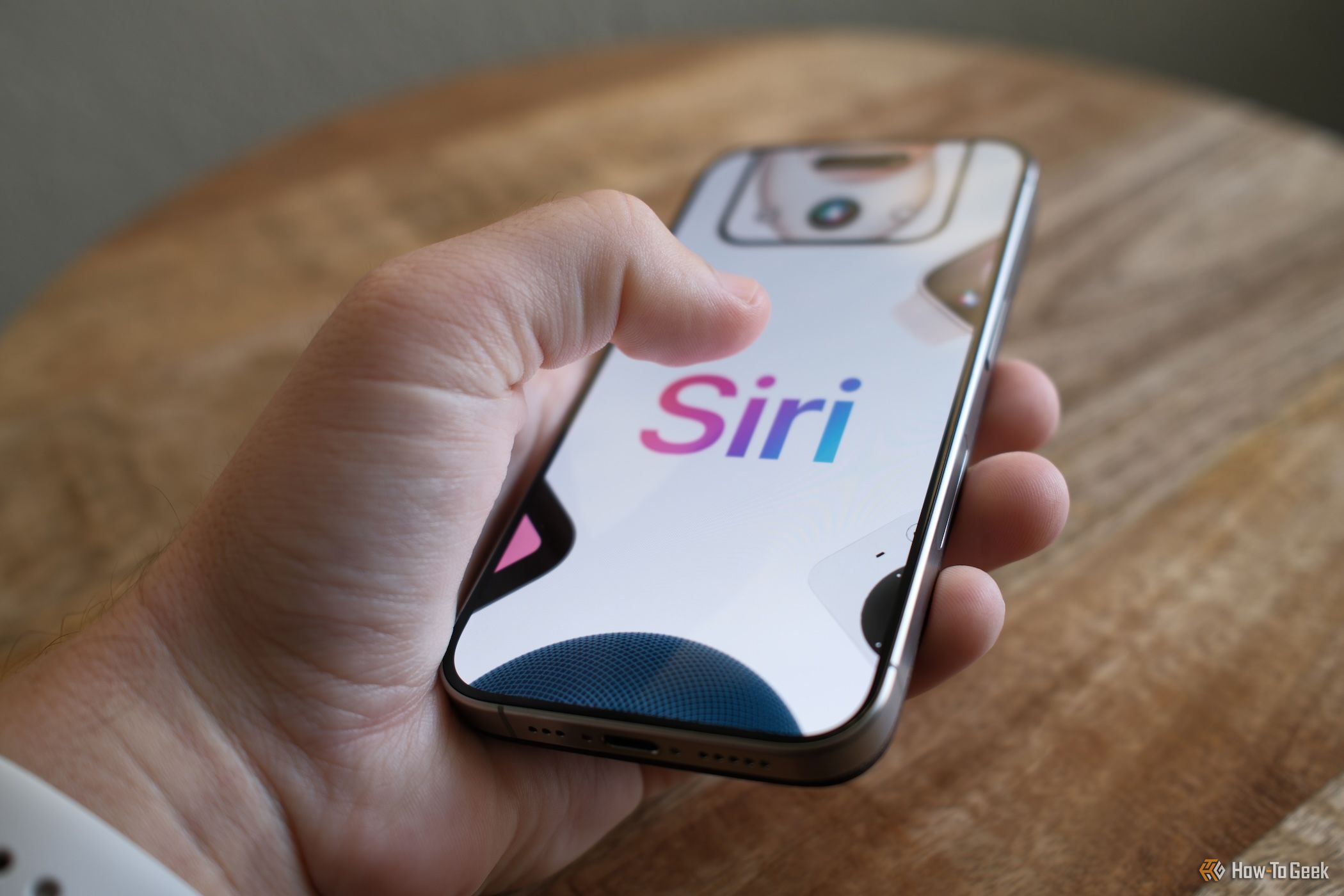
Critics Slash 'Humane AI' Game: Surprisingly Innovative Concepts Inside

Critics Slash ‘Humane AI’ Game: Surprisingly Innovative Concepts Inside
Quick Links
- I Can See The Future Where Affordable Universal Translators Are A Thing
- An AI-Based Digital Assistant Could Enable Voice-Only Phone Interaction
- I’d Love to See Humane AI Pin’s Privacy Features On Smartphones
Key Takeaways
- Future universal translators may run local language models for faster, more efficient translation.
- AI-powered digital assistants that control smartphones through voice commands could be the next big thing.
- Privacy features like end-to-end encryption enabled by default in every chat app and visual cues for recording should be standard on smartphones.
The Humane’s AI Pin ended up as one of the worst tech products of 2024. Despite the critical panning the device rightfully deserved, the AI Pin harbors some pretty cool ideas. I can see three of those ideas finding their way into smartphones or becoming a reality as standalone devices.
I Can See The Future Where Affordable Universal Translators Are A Thing
One of the coolest features of the Humane AI Pin is its real-time translation, especially when combined with the form factor and the fact that the device resides on your chest, where it can seamlessly pick up what you and the person you’re talking to are saying.
The issue here, aside from the fact that no one in their right mind should pay $700 for a real-time hardware translator, is that the feature, like virtually every feature found on the AI Pin, doesn’t work as intended all the time, and when it does, it’s rather slow.
That said, I can imagine a future where we use affordable universal translators. But instead of running a cloud-based large language model, this universal translator would run a local LLM that specializes in language translation and nothing else. All you have to do is set the output language—or the translator could automatically recognize the language spoken by your interlocutor.
This way, translation could run much faster, and the translator wouldn’t be equipped with bleeding-edge hardware; just a system on a chip (SoC) powerful enough to run a local model specializing in translation, along with rudimentary firmware. No full-fledged operating system would be needed. With the arrival of GPT-4o , this doesn’t sound like a far-fetched dream anymore. Moreover, we’re seeing the rise of NPUs (Neural Processing Units) that will run AI models more efficiently in future.
A device like this could be used at large international conferences where not every participant speaks perfect English, during foreign state visits, at the UN, and similar organizations where members don’t speak the same language, such as the European Council. Definitely beats using human translators or your phone.
Another use case could be during tourist sightseeing tours, where universal translators could make communication between tourists and locals instantaneous without having to rely on other tools such as smartphones, dictionaries, or praying you’ve got someone in your group who speaks the local language—pretty common when in an English-speaking country, not so common in countries that don’t have English as one of the official languages.
An AI-Based Digital Assistant Could Enable Voice-Only Phone Interaction

Tyler Hayes / How-To Geek
Humane’s promise of an AI-based digital assistant failed, but the general idea of an AI-powered digital assistant does sound quite enticing. Imagine having a digital assistant that’s not only capable of limited interaction with your phone’s operating system, replying to incoming messages, and performing Google queries, but also interacting with every single app on your phone. You could then use that assistant to control your phone only through voice commands.
Privacy issues and current problems Google and the gang have with LLMs aside, this could be the killer LLM feature. A digital assistant that’s always around and can write your emails and messages, play music on Spotify, scribe down random notes, tell you the current weather, order food from your favorite app, and more.
I discussed this at length in my smart glasses piece , where I also mentioned that your regular, jack-of-all-trades LLM won’t cut it here. A multimodal foundation model trained on using smartphone apps that works in tandem with the main AI assistant—Gemini or AI-powered Siri—as its subroutine and resides on your phone would likely be a better option than a full-fledged LLM that needs an array of GPUs to work on top of a constant internet connection, which is the case with the “assistant” found in the Humane AI Pin.
Google is trying to do something like this with its Project Astra , further confirming that Humane had the right idea with its AI digital assistant. Unfortunately, rushing the project through the doors before Google and Apple offered their AI-powered digital assistants was likely the wrong strategy.
Also, a smartphone combined with a smartwatch or a pair of smart glasses sounds like a much better combo for using and issuing commands to a versatile AI assistant than a gadget without a display that needs a constant internet connection and has a reportedly pathethic battery life.
I’d Love to See Humane AI Pin’s Privacy Features On Smartphones
Last but not least, let’s talk about AI Pin’s privacy-related features, probably the only aspect of the device I genuinely like. For starters, each and every chat app should come with end-to-end encryption enabled by default. This is a basic privacy feature and, sadly, many chat apps don’t offer it. Even if they do, in most cases, end-to-end encryption isn’t enabled by default.
Next, having a visual cue that lights up every time you start filming or taking photos with the AI Pin is a brilliant feature I’d love to see on smartphones. Just add an RGB light strip around the camera lens—or anywhere on the back of the device, since light around the camera lens could mess up image and video quality—and every time you start filming or taking pictures, the RGB ring will light up, notifying other people that you’re recording them.
I don’t believe the Humane AI Pin, Rabbit R1 , or any other “AI Pin” device will ever become mainstream. Still, I think the three ideas championed by the AI Pin I talked about in this piece can find their way to the market, garner a fair amount of attention, and become mainstream, especially the all-powerful AI digital assistant.
Also read:
- [New] 2024 Approved Best Practices for Exporting YouTube Videos to Facebook
- [New] How Much Wealth Can You Generate on YouTube Using CPM?
- AMD Demonstrates Significant Boost in Efficiency & Speed Through Zen 5 Multithreading – Unlike Intel's Post-Lakefield Shift Away From Hyperthreading
- AMD Neglects Critical Security Fixes on Vulnerable Chipsets; 'Sinkclose' Bug Remains in Legacy Ryzen CPUs
- Comment Résoudre L'erreur D'un Périphérique USB Non Reconnu Sous Windows 11
- Expert Tips for Resetting the New Generation of iPhones - The XS
- How to Unlock a Network Locked Nokia C12 Plus Phone?
- In 2024, Patterned Pixels Loom's Guide to Screen Casting
- Insta-Popularity on Youtube Jake Paul’s Story Unfolded for 2024
- Logitech K400 Plus Software - Download and Install
- New The Ultimate List 10 Free Video Speed Editor Apps for Mobile Users
- SK Hynix Reduces 3D DRAM Manufacturing Expenses with Advanced EUV Process Tools, Halves Pricing
- Tom's Tech Hub: In-Depth Reviews and Gear Guides
- Tom's Tech Insights: Leading Hardware Reviews and Advice
- Top Back-to-School Technology Discounts of 2024 - Secure Your Student's Must-Have Gadgets Now
- Unveiling New Insights on Tom's Computer Components Analysis
- Title: Critics Slash 'Humane AI' Game: Surprisingly Innovative Concepts Inside
- Author: Joseph
- Created at : 2024-10-16 01:15:03
- Updated at : 2024-10-18 16:22:42
- Link: https://hardware-help.techidaily.com/critics-slash-humane-ai-game-surprisingly-innovative-concepts-inside/
- License: This work is licensed under CC BY-NC-SA 4.0.